
Ashraf discussed matters of mutual interest with Dr Rassoul.
The Prime Minister termed the recent visit of Salahuddin Rabbani, Chairman of the High Peace Council, to Islamabad successful. He said that the Council made important contributions and engaged positively with their Pakistani interlocutors.
The prime minister said that both Afghanistan and Pakistan faced a common challenge of terrorism and drug trafficking. He stressed that both the countries needed to work closely to confront these challenges.
The Prime Minister expressed the hope that the agreement between the two countries to hold an Ulema conference would contribute positively towards consolidating relations between the two countries.
The Afghan Foreign Minister said that the visit of High Peace Council was successful and both the governments were now talking to find solutions. He though stressed that the time had come to show results.
Afghan Deputy Foreign Minister Jawed Ludin, Afghan Ambassador to Pakistan Mohammad Umer Daudzai, Minister for Foreign Affairs Hina Rabbani Khar, Minister for Defence Syed Naveed Qamar and other senior officials were also present in the meeting.
Pakistan agrees release of more Taliban prisoners
Pakistan on Friday agreed to operationalise the joint commission on release of prisoners which would see another batch of Taliban prisoners being handed over to Afghanistan in a bid to facilitate peace talks between insurgents and the Afghan government, a joint foreign ministry statement said.
The announcement came after talks in Islamabad between Foreign Minister Hina Rabbani Khar and the visiting Afghan Foreign Minister Zalmai Rassoul. The Joint Commission to address the prisoners issue will also be opperationalised as announced during the visit of President Karzai to Islamabad in June 2011.
The number of prisoners to be released was not specified but is not thought to include the Taliban's former deputy leader Mullah Abdul Ghani Baradar, who was captured in 2010.
A senior Pakistani security official earlier told AFP that "no decision" had been taken on his release.
The joint statement said both sides agreed the "release of more prisoners, facilitating contacts and urging the Taliban to renounce ties to al Qaeda".
It was the second high-level delegation to visit Pakistan this month to press for the release of Taliban prisoners in a bid to kickstart peace efforts. Talks two weeks ago between Pakistan and Afghanistan's High Peace Council resulted in the release of nine Taliban.
Afghan officials believe senior Taliban leaders held in Pakistan could help bring militants to the negotiating table, if released from jail, to end over a decade of war ahead of the 2014 pull-out of US-led NATO troops.
"I hope that we will continue to implement other concrete measures in a timely manner and push the peace process forward... so that all those who can help advance the peace process go free," Rassoul told reporters after talks with his Pakistani counterpart.
No decision on Baradar as more Taliban released
An Afghan official had told AFP ahead of the meetings that Rassoul would ask for the release of further Taliban detainees, including Baradar. But a senior Pakistani security official told AFP that "no decision" had so far been taken on whether to release him.
"We have to ascertain how important he can be. Pakistan believes Baradar may not be enjoying the same clout he used to have before being arrested in Karachi two years ago," the official said.
The Taliban, leading an 11-year insurgency since the 2001 US-led invasion, has welcomed the releases, but refuses to negotiate directly with Kabul, calling the government of President Hamid Karzai a US puppet.
Preliminary contacts between the US and the Taliban in Doha were broken off in March when the militants failed to secure the release of five of their comrades held at the Guantanamo Bay prison on the US base in Cuba.
Support from Pakistan, which backed the 1996-2001 Taliban regime in Kabul, is seen as crucial to peace in Afghanistan after the departure of NATO forces.
The joint statement said the two sides also discussed the issue of cross border incursions and shelling and agreed to have an institutionalised mechanism to address this issue.
Afghanistan and Pakistan blame each other for a number of recent cross-border attacks that have killed dozens of people.
Afghanistan shares a disputed and unmarked 2,400-kilometre (1,500-mile) border with Pakistan, and Taliban and other al Qaeda-linked militants have carved out strongholds on either side.
Security, trade cooperation to be enhanced
In addition to the agreement to operationalise the joint commission on release of prisoners, both sides agreed to hold the Ulema Conference in Kabul and an institutionalised mechanism to address cross-border shelling.
Pakistan and Afghanistan further agreed to enhance cooperation in the fields of security‚ development‚ transit‚ trade‚ economic and investment linkages‚ infrastructure and energy connectivity and people to people contacts.
A joint statement issued after talks between Foreign Ministers of the two countries in Islamabad on Friday said they agreed to initiate negotiations for signing of the Strategic Partnership Agreement.
The two countries also reaffirmed commitment to jointly overcome the common challenges of terrorism and extremism.
The two sides discussed the issue of cross border incursions and shelling and agreed to have an institutionalised mechanism to address the issue.
Pakistan and Afghanistan also agreed to enter into a bilateral Visa Abolition Agreement for holders of diplomatic passports to facilitate visa free travel for the diplomats of the two countries.
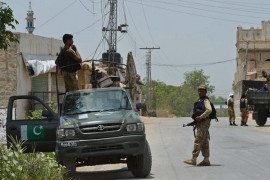
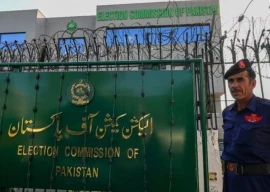


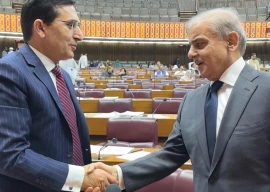

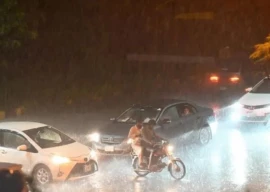

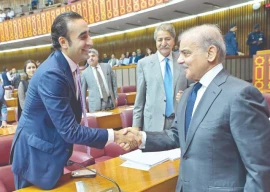
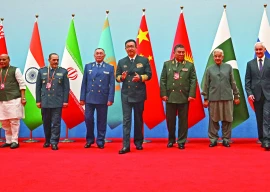
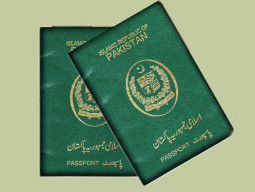
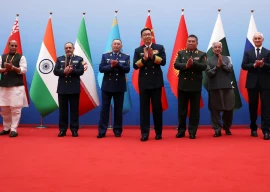






COMMENTS
Comments are moderated and generally will be posted if they are on-topic and not abusive.
For more information, please see our Comments FAQ